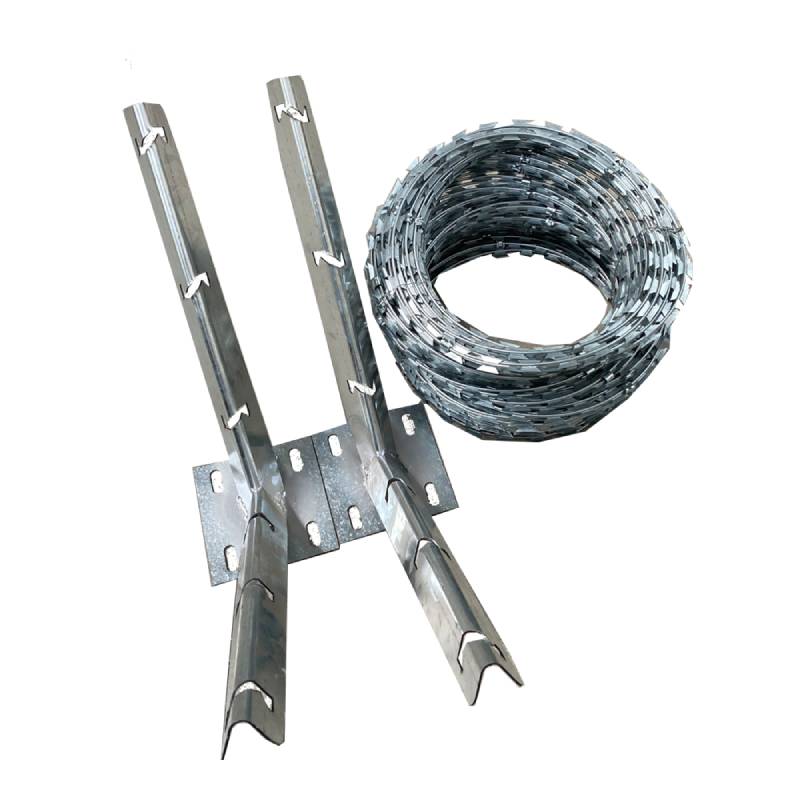wire for chicken fence
Understanding Wire for Chicken Fencing A Comprehensive Guide
When it comes to raising chickens, one of the most critical aspects to consider is proper fencing. A well-constructed chicken fence not only keeps your poultry safe from predators but also prevents them from wandering off. Among the various materials available for chicken fencing, wire is a popular choice due to its durability, affordability, and versatility. This article delves into the different types of wire used for chicken fencing, their benefits, and essential tips for installation.
Types of Wire for Chicken Fencing
1. Chicken Wire Chicken wire, also known as poultry netting, is a lightweight, flexible material made of thin wire strands, creating hexagonal openings. It is cost-effective and easily molded to fit various terrains.
Benefits - Affordable and readily available - Good for securing your chickens in a coop or run - Easily cut and shaped for specific needs
However, chicken wire may not deter larger predators like raccoons or foxes, as these animals can easily breach the fence if they are determined enough.
2. Hardware Cloth Hardware cloth is a sturdier option made of thicker wire that is woven to create small squares, usually available in 1/2 inch or 1-inch openings. This material provides a stronger barrier against predators.
Benefits - Higher durability compared to chicken wire - Effective at preventing entry from smaller animals such as rats and weasels - Versatile for both fencing and coops, as it can be used for flooring too
The disadvantage of hardware cloth is its higher cost and more challenging installation process due to its rigidity.
3. Welded Wire Welded wire fencing consists of thicker wires that are welded together at intersections, creating a strong and sturdy fence. It’s available in various heights and gauges, making it suitable for larger enclosures.
Benefits - Extremely durable and long-lasting - Resistant to rust and corrosion - Provides excellent protection against predators
The cons include its higher price point and the fact that it is heavier and requires more skill for installation.
wire for chicken fence

4. Electric Fencing Electric fencing utilizes electrified wires to create a psychological barrier for animals. It can be combined with other fencing materials to enhance security.
Benefits - Effectively deters predators and roaming animals - Can be used in conjunction with traditional wire to provide an additional security layer
While effective, electric fencing requires a power source and regular maintenance to ensure it remains operational.
Installation Tips for Wire Fencing
1. Choose the Right Height The height of your chicken fencing will depend on the breed of chickens you own and the potential predators in your area. A minimum height of 4 to 6 feet is recommended to prevent chickens from flying out and to keep predators at bay.
2. Bury the Bottom To prevent burrowing animals from digging under the fence, bury at least a foot of the wire at the bottom or use a trench to ensure that any potential threats are kept away.
3. Secure Gates Use sturdy locks and latches for any gates in your fencing to prevent predators from accessing your flock. Ensure that gates are hung properly and that they close tightly.
4. Regular Maintenance Inspect your wire fencing periodically for any signs of rust, damage, or wear. Prompt repairs can maintain the integrity of your fencing and keep your chickens safe.
5. Consider an Overhead Cover If your chickens free-range, consider adding a roof or overhead netting to your enclosure to protect them from aerial predators like hawks.
Conclusion
Choosing the right wire for chicken fencing is a crucial factor in ensuring the safety and well-being of your poultry. Each type of wire offers different benefits and considerations, so it’s essential to assess your specific needs and the potential threats in your area. With the right fencing in place and diligent care, you can create a secure environment for your chickens to thrive, providing you with fresh eggs and plenty of joy in your backyard.
-
Space-Saving Chain Fence Hacks Vertical Gardening with Cyclone MeshNewsJul.16,2025
-
Innovations in Iron Nail Wire Production for Modern ConstructionNewsJul.16,2025
-
Creative Uses of Wire Netting Fence in Modern Landscape DesignNewsJul.16,2025
-
Barbed Wire Fence Innovations in Anti-Climb TechnologyNewsJul.16,2025
-
Architectural Uses of Umbrella Nails for Aesthetic Roof DesignsNewsJul.16,2025
-
Architectural Uses of Razor Barbed Wire in Secure Urban DesignNewsJul.16,2025




